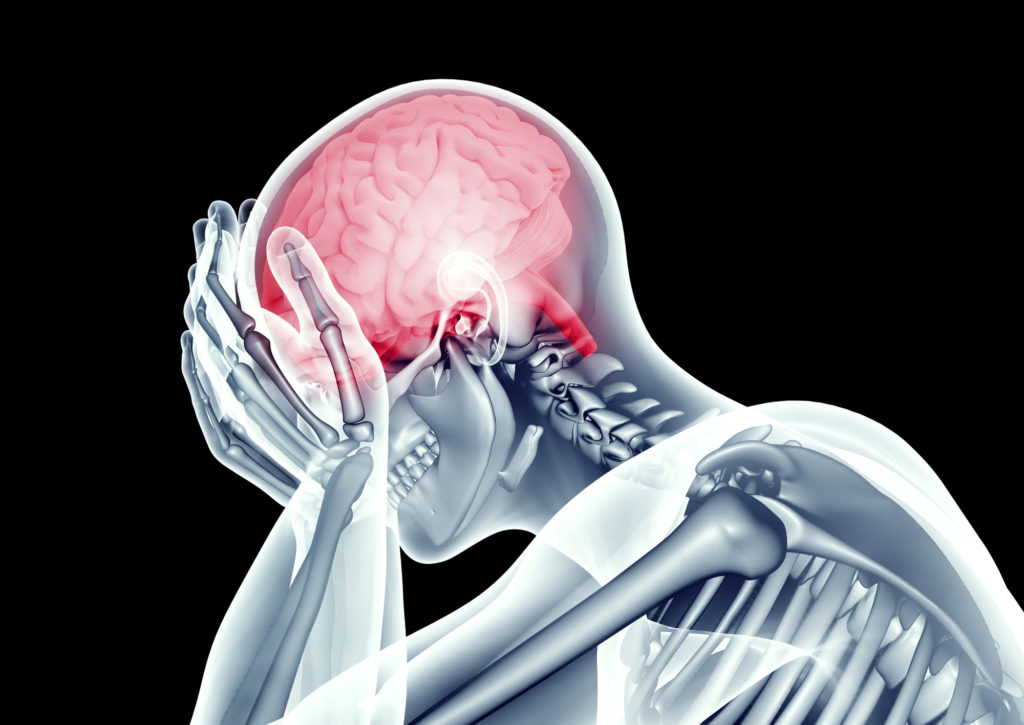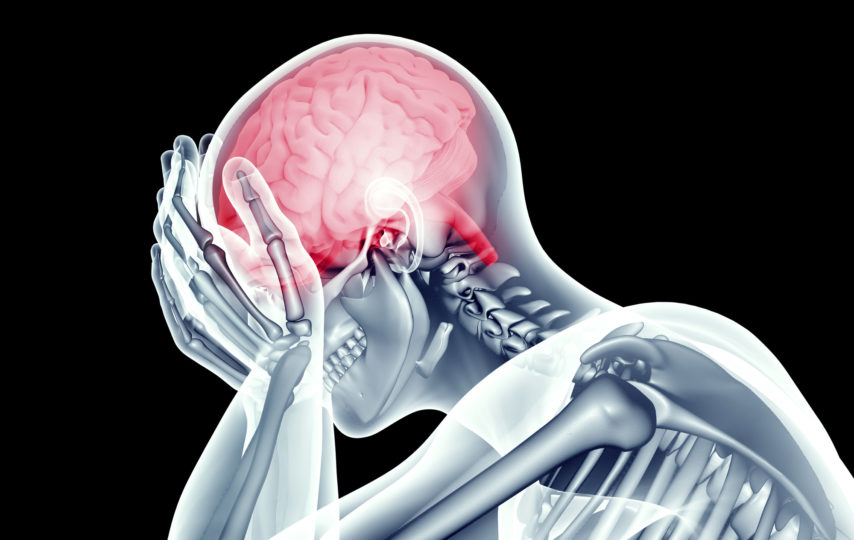
x-ray image human head with headache pain
How much worrying is too much?
If you worry about big and small things, with the same intensity, you could be dealing with a generalized anxiety disorder (GAD). Thankfully, there are evidence-based treatments for GAD that don’t require any medication, such as cognitive-behavioral therapy (CBT). Patients who undergo CBT for anxiety have a 60-90% success rate, as they learn how to be more self-aware.
Another way to increase your self-awareness is by learning about the connection between anxiety and hormones. Instead of identifying with the whirlwind of emotions anxiety brings, you can empower yourself by understanding what’s going on in your body. If you want to Learn Hypnotherapy, then visit website.
Read on to learn the truth about hormones and anxiety.
Anxiety and Hormones for Women
First, let’s look at the connection between anxiety and hormones when it comes to progesterone and estrogen. Both progesterone and estrogen help with women’s menstrual cycles and they can have a big influence on mood.
Estrogen levels rise during the first 2 weeks of a cycle, and it floods your body with feel-good serotonin. However, while estrogen helps create a sense of wellbeing, progesterone is closely linked with anxiety and irritability.
By stimulating the amygdala, progesterone activates the flight or fight response that’s closely linked to stress, anxiety, and depression. The contrast of the 2 hormones can be startling. One minute you feel peaceful, and then suddenly progesterone throws you into a whirlwind of worry.
Signs of Hormonal Imbalances in Women
When it comes to women’s hormones, imbalances can cause feelings of anxiety, while also affecting your other bodily function. For instance, irregular periods can be a sign of a hormonal imbalance. When there’s too much or too little progesterone, and estrogen, it can throw the cycle off track. Low estrogen can also cause problems like night sweats and hot flashes.
Whereas, if your progesterone levels are too high you can wind up having trouble falling asleep. Women who experience problems like chronic acne may be dealing with an excess of male hormones, such as testosterone.
On the other hand, low testosterone in women can impact things like your mood and overall health. Left untreated, low testosterone levels in women can cause heart disease, memory loss, and more.
Adrenaline and Cortisol Cause Stress
Moving on, adrenaline and cortisol are 2 types of stress hormones that can cause anxiety. Stress hormones help you survive by letting your body know when there’s a threat you need to run away from.
The problem with stress hormones is that they can kick in, even if you’re not in real danger. When your adrenaline and cortisol levels rise for small situations, like dealing with traffic, or a stressful phone call, anxiety can start to build.
Effects of Chronic Stress
If you start to experience chronic stress, your baseline for anxiety can rise. Before you know it, you’ll always be in a slightly anxious state, and unable to unwind. As a result, you’ll have elevated levels of stress hormones like adrenaline and cortisol in your system. Overexposure to stress hormones can cause severe anxiety, depression, digestive problems, and more.
Healthy Stress Management
Understanding the connection between stress hormones, and anxiety is the first step towards improving your mental health. Next, you’ll need to start recognizing what’s in your circle of control, and what’s outside of it. Let’s use traffic as an example.
Traffic is stressful, but it’s also outside of your circle of control. What’s within your circle of control?
Focus on What You Can Control
Yelling at other cars, honking your horn, or making angry phone calls while you sit in traffic, will only intensify the stressful situation. Instead, tell your mind a few healthy things that it can do that are within your circle of control.
For example, you can practice taking deep breaths while you sit in your car, turn on a song you like, or listen to a stand-up comedian. You won’t instantly feel better, however, over time you’ll be able to teach your brain that traffic isn’t life-threatening. The main goal is to learn how to stop feeding the anxious thoughts and instead redirect your focus on things you can control.
How Genetics and Memory Impact Anxiety
Why do some people get more stressed out and anxious than others? There’s a lot of different reasons, such as lifestyle choices. For instance, someone who exercises regularly and eats healthy may have an easier time regulating stress hormones. However, some of the factors that impact how you experience stress, are completely out of your control, like genetics.
Tiny differences in your genes that regulate the stress response can cause you to perceive something as overwhelming, while your friend’s barely phased. Life experiences also alter the way you experience stress. If you’ve had a lot of traumatic experiences, your brain may be hard-wired to “freak out”, more often than not.
Lifestyle Changes
Managing your mental health doesn’t stop when you learn how to control your mind. You’ll also have to learn healthy lifestyle choices that will set you up for success.
Here are a few ways you can invest in your mental health:
- Exercise regularly
- Get a full night’s rest
- Have social outlets
- Eat fruits and vegetables
- Meditate daily
- Make time for work and play
You’ve probably noticed that you’re not yourself when you’re tired or hungry. Even if your hormones aren’t imbalanced when your body doesn’t have the things it needs you can feel the effects emotionally.
Where Is Your Mind?
Are anxiety and stress taking a toll on your mental health? Perhaps you notice that you’re always slightly worried about life, or maybe anxiety’s keeping you up at night. Whatever the case may be, you shouldn’t wait another day to take care of your mental health.
Understanding the connection between anxiety and hormones is just the start. Next, you’ll need to set an appointment with your primary care physician so you can find out the best approach to getting your mind back! For more tips like these, read another one of our articles.













